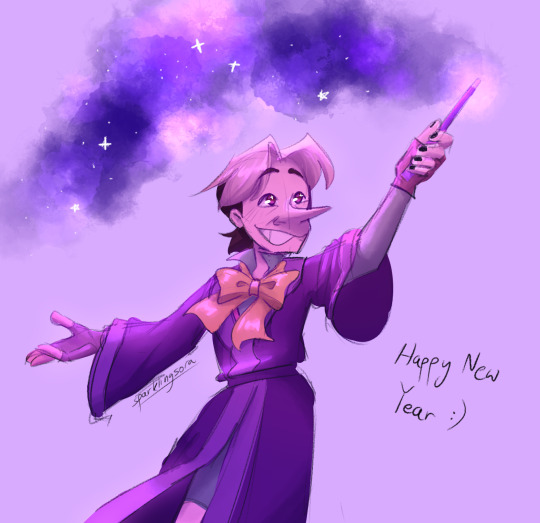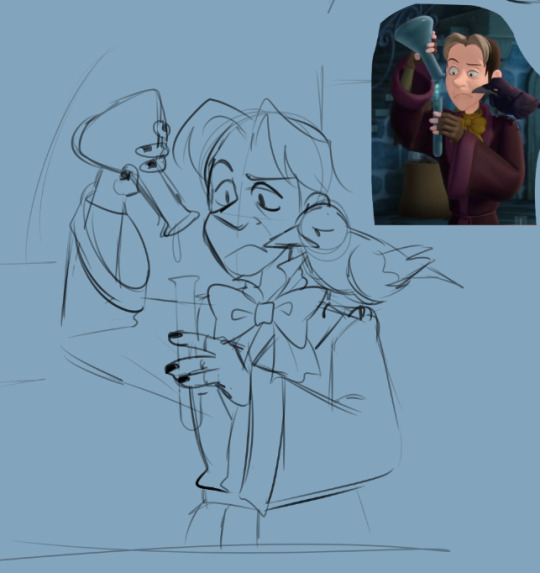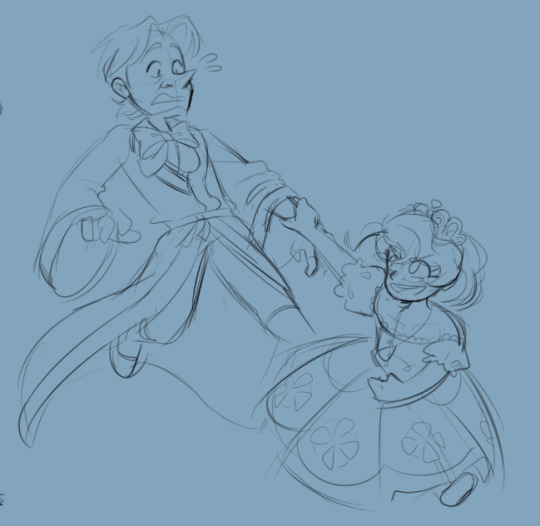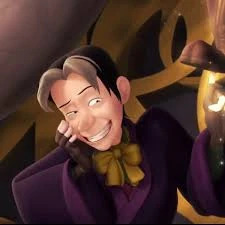#i watched a video essay on cedric
Text







cedric! my friend Cedric! and there are a few sofias as well!
half of these + a whole bunch of other Doodles that im not posting here were drawn before i even started watching the show, and i dont know what that say about me, but i know what it says about him! i Diagnose you with Fun To Draw!
#sofia the first#cedric the sorcerer#cedric the sensational#cedric the great#i find it incredibly amusing that this dude has 3 different character tags#princess sofia#the target audience of my interests is steadily regressing#soon i'll be watching cocomelon /lh#my art#i watched a video essay on cedric#and his swagless looks and cringe personality captivated me#immediately#and now i got to actually watching the show!
128 notes
·
View notes
Text
you ever watch a video essay for a show you've never and never will watch, that causes you to end up down bad for another pathetic middle aged man again.
#watched a cedric sofia the first video essay today#never watched that show#just want the abyss of my blog to know that before i begin obsessing over that guy for the next day#or month
0 notes
Text
CLASH OF THE WIZARDS ROUND 1-B BOUT 11
CEDRIC (Sofia the First) VS KAMEK (Super Mario)
Propaganda under the cut!


PROPAGANDA
CEDRIC
"I watched a whole video essay on this man. The poor guy was publicly shamed since he was a kid for messing up a spell (it wasn't even his fault). He's great at magic! But only when there's no one else around. Because he's anxious about others' expectations of him."
KAMEK
"Funny little evil wizard turtle man. He may be a lil basic but I'm pretty sure her qualifies as a wizard. Not to mention shapes for magical effects. :3"
#clash of the wizards#clash of the wizards polls#sofia the first#cedric sofia the first#super mario#kamek#kamek koopa
21 notes
·
View notes
Text
I have this weird relationship with Harry Potter (not the character, the books/movies/stories) and I need to tell someone about it. I don't feel much toward the actual story (it's me, not the book, I'm the problem), but there are three things I love in this universe.
Its mostly THE LOREEE. Nothing interests me in Harry Potter more than the Lore. Not quite the main story, but the story of smaller characters. The stories of what happened waaay before our current characters even existed.
1. Tom Riddle. His birth, collection of horcurxes, all of it, I loved. The was an air of undeniable darkness that wa so different from the main story.
2. Regulus Black. So incredibly niche, I don't know how to find anything on it except that one video essay about his life on YouTube by MovieFlame I've watched a billion times. But the idea of an unknown hero. Someone who is thought to be a coward, a deatheater, even by his loved ones is actually a hero who died for good.
3. Cedric Diggory. Hufflepuff representation. Also a genuinely good person who exceeded expectations and died for it. It's the idea that he clearly had so much potential, but "kill the spare." And he just died. He was a spare. Voldermort didn't think anyone but Harry Potter would win, and then, here comes this hufflepuff pretty boy who does exactly that? (Also, Robert Pattinson for the win).
So you see my predicament. The only parts of Harry Potter I actually care for are so random– and as someone who likes crossover fanfictions with other fandoms, idk who the hell would be making these.
ALSO important note: I'm not saying Harrpy Potter is bad or anything. I just really like these specific parts while the story itself doesn't interest me as much. :)
9 notes
·
View notes
Photo


[Note: this post originally appeared in this thread. Owning to Tumblr’s inability to update reblogs with edits because it is a hellsite programmed by a secretive cell of former Stasi operatives to avenge the fall of East Germany, it has thus been re-edited and reformatted here for your reading pleasure.]
JK Rowling’s wizards are the most useless, lazy, incapable dumbfucks in the history of fiction. The average Muggle? You take away their technology and they would be able to complete the basic tasks of feeding and clothing themselves without shitting on the floor.
If a wizard ever lost their magic in Harry Potter, though, they would die. They’d be dead in three days. They’re garbage and I hate that I’ve come to hate Harry Potter - a series I once loved - because an author inexplicably hailed for her world-building is daily revealed to be appallingly bad at it.
I realize this is a really dumb thing to be this angry about but I’ve been told for years what a great world-builder J.K. Rowling is, and that was not even true when the books were coming out. The Time Turner ruined all of Harry Potter forever, not because it offers easy time travel you can hold in your hand (although it does), not because you ask ‘why don’t they just use the time turner’ with every subsequent scenario forever (although you do), but because it was an enormous, flashing red light warning everyone that the series was going to attempt to make the transition from Fairy Tale Logic to Serious Fiction logic and fail.
Badly.
Really, really badly.
I still think Harry Potter & The Philosopher’s Stone is an almost perfect book: a distillation of decades of boarding school genre fiction combined with magic, friendship, and wonder. It is a book that owes as much to Enid Blyton and L.M. Boston as it does to C.S. Lewis or T.H. White and other authors with two first initials. Its sense of place is magisterial, from the frumpy, soul-crushing suburban sadness of Privet Drive to the ephemeral curio-shop wonderland of Diagon Alley to Hogwarts itself, a bastion of astonishment, homeliness, and delight.
What it isn’t is the sort of framework on which you can support the horror that is the torture and murder of Charity Burbage in front of her colleague Severus Snape, who could not rescue her because he could not break his deep cover as a spy against Wizard Hitler 2.
Long-running series can experience changes of tone and complexity. This is neither something laudable nor worth reviling; it’s a neutral phenomenon. Sometimes series do it well: Susan Cooper’s The Dark Is Rising and Terry Pratchett’s Discworld are both series that by-and-large end with books focused on far more complex issues than their earlier entries. TV series do this too: contrast the early episodes of Steven Universe or Adventure Time with episodes from later seasons. With Adventure Time, for example, trying jumping from the pilot to Remember You and see how hard you get tonal whiplash) Lois McMaster Bujold sublime space opera The Vorkosigan Saga doesn’t just change tones but also genre: space adventure, murder mystery, political thriller, goofy regency romance, comedy of errors, heist movie, schizoid identity crisis - on and on. The latest entry in the series has almost no plot to speak of, but is instead a musing on age, gender roles, grieving the loss of a lover, and the hope of new life.
Some series, however, manage the transition poorly, largely because the initial tone cannot be harmonized with the later tone (Mass Effect jumps immediately to mind). But Harry Potter has more than just a problem of its tone getting darker: its trying to have darker events fit in the same world in which people can walk around with names like ‘Mundungus,’ the Hogwarts school song can be a nonsense poem, and the Philosopher’s Stone was defended with a series of video game puzzles. In a world in which the villain openly tortures somebody to death, the Philosopher’s Stone shouldn’t have any whimisical bullshit about its magical defences: it should have trip mines in the floor and an enchanted statue with a gun, because Voldermort isn’t a guy you confound with drinking potions and flying keys. You should just kill him.
The charming fairy world of wonder of HP & The Philosopher’s Stone has room for a love potion. The later books, in which it is revealed that Voldemort was essentially born from rape, is not place where Ron Weasley can hand-out a book to Harry called Twelve Fail-Safe Ways to Charm Witches without seeming like a predator in the making.
The cradle that is The Philosopher’s Stone cannot hold a beastly baby like Deathly Hallows any more than Grindlewald pontificating about the superiority of wizards can sit comfortably in a universe in which wizards took until the 18th century to accept the outhouse! Not that fascist ravings are inherently logical; but even non-fascists in Harry Potter never act like wizards are anything other than 100% better than muggles at all times. They can’t, because if the series were ever to do that it would have to acknowledge that the two worlds are different: neither better, just different. Instead - well, as Ron once bitched, magic makes coffee perfect every time, so it’s not clear how muggles stand being alive and don’t just roll-over and die from the hellacious half-life that is living with imperfect coffee.
This has nothing to do with irony, a suggestion that ‘oh Grindewald talks a big game about wizardly superiority but wizards didn’t use toilets and cal themselves goofy names like Flumpus MacFludgeon: Rowling is using dramatic ironic to lampshade how wizard supremacy lacks self-awareness. No: this is about a world that is silly being asked to host a genocidal dictator and his crimes. It’s like those tedious ‘grimdark’ AUs that always show up in bad fanfiction by authors attempting to be serious: what if the Sesame Street gang had to deal with ICE, what if Po started haemoraging while hanging-out with Laa-Laa, what if Peppa Pig learned that she was adopted and her real parents were brutally murdered as part of gang war because they were heroin dealers and so on. (The best skewering of this edgelord comedy is still probably either Andrew Hussie’s Muppet Babies/Saw comic or any encounters the Shortpacked staff ever had with the Transformers: Buckets of Blood guy.)
In Harry Potter, Rowling built a wonderful little fantasy world that ran happily on the logic of fairy tales and fairy stories, and then decided she was never going to be taken seriously as an author unless she introduced Hitler to the equation. And it never works for her. It’s not like it couldn’t have worked. The Lord of the Rings is famously a very different book from The Hobbit. It did, in fact, introduce Hitler into a little fantasy world but Tolkien made it work by abandoning huge portions of the Hobbit’s tone, style, and structure: he wrote a completely different book. Frodo isn’t scarfing-down Bertie Bott’s Every Flavoured Beans on the slopes of Mount Doom.
The moment, say, Cedric Diggory lay dead in Harry’s arms, we needed to never meet Mundungus Fletcher ever again, or Weasley’s Gooftacular Prank Nonsense, or Ron getting Harry a book about love spells. All the very least that needed to go away, at least until the very end, because Rowling is not an author with the skill to keep the silly and the sublime on the same page. That’s fine in and of itself: all artistic people have strengths and weakness, nobody is skilled at every element of creation. J.M. Barrie was very good at writing a book about an eternal child, but a bit crap at writing a biography about his mother. Arthur Sullivan spent his life quietly seething no one wanted to listen to Ivanhoe instead of The Mikado. There’s a reason Jerry Lewis never released The Day the Clown Cried.
Virginia Wolfe is a great writer, but that doesn’t mean she would have written a great run on She-Hulk. [Although now that I’ve said it I can’t think of anything I want to read more.]
There’s a great bit in the Lord of Rings after the Shire has been scoured of Saruman where the Hobbits essentially open-up their larders and allow people to have fun again; there’s also a nice bit slightly earlier where Great King Aragorn puts on his old Strider clothes just so he can be his D&D character again: when series change tone, unless you’re really good at walking on a knife’s edge, the quieter, gentler, lighter world isn’t gone forever, but it does have to go away for a while: which means its time to tamp-down on the people with silly names and personalities - like Slughorn, who slips into book six like the second-coming of the vain and silly Lockhart, even though that’s the book where Dumbledore dies.
Rowling keeps trying to makes her old tone fit with her new world without having to pull a Tolkien and actually write differently, which produces moment after moment of tonal whiplash in which the latest Potter-related movie literally involves referencing the holocaust but she also drops some fun trivia about wizards shitting on the floor like animals. (You could describe the entirety of the first Fantastic Beasts film as Tonal Whiplash: The Motion Picture. I’d say that’s an essay for another day but I do not want to have to watch that movie again.)
It needs to be said that a primary reason these tone shifts ‘don’t work’ for Harry Potter is that the logic of a fairy tale is different than the logic of a mundane story. The logic of a fairy tale tends to be self contained: it doesn’t have a smart ass running around asking questions like ‘why’ because there is no why; a thing is the way it is because it is the way it is. Fairies steal babies on the third Sunday of every month, and nobody in the story asks ‘well what about in countries that use different calendars, and what about the shift from Julian to the Gregorian calendar that skipped eleven days?’ because such a pedantic question has no substance in a fairy-tale world. The Clever Child might question what the fairies need with babies, but she’s not about to break-down the week-to-week investment metrics on the Fairyland Infant Exchange.
It’s not that one cannot critique or bring critical thinking to fairy stories; it’s that in a fairy story you don’t ask how the sewer system works because it’s not pertinent to what the story is trying to convey. It’s being the guy at the book club who is mad nobody wants to discuss his theories on the music of Rush: its not that the theories are bad, it’s that in this time and place they are of limited relevance.
Harry Potter, however, does not belong to to the world of fairy stories, but to the legacy of Tolkienesque fantasy - the world of

In The Hobbit nobody would ever ask if Hobbiton had sewers - it’s not important, and if you ask those kind of questions expecting there to be a serious answer of grave import you’re being a twit. Lord of the Rings, though? Not only is it a valid question, but Tolkien probably wrote a paper explaining the etymology of the Westron word for ‘sewer’ and how sewers were first invented by Shítlívær the Noldor as a way of helping the Blessed Isles cope with all the crap that tumbled out of Fëanor’s mouth.
The world of The Hobbit is one you could enter and expect to quickly find yourself on an adventure. The world of The Lord of The Rings is one you could enter, walk-about, and study without anyone ever exepecting you to solve some sort of regionally-disturbing social problem: in short, it wants you to be invested in the existence of its world in a different way than The Hobbit. Even then, although The Lord of the Rings is more grounded than The Hobbit, it is not so grounded that it doesn’t leave room for mystery, and questions that refute Wittgenstein’s assertion that all questions must be answerable. Tolkien loved to create complex worlds, but there was stuff he knew wasn’t worth elaborating on. It’s really his fans and authorial heirs who developed the somewhat worrying belief that a good worldbuilder has to have an answer to literally every question or else didn’t think their world through. (This has killed more potentially good books than bad cover art ever has.)
The Lord of the Rings leaves room for The Undiscovered Country.
Harry Potter wants too… but can’t.
Firstly, Rowling obviously understands the need for what we might call poetic mystery - like the gateway in the somewhat unsubtly name Department of Mysteries - but she also wants you to know how wizards pooped three hundred years ago. You get the feeling she knows exactly how and why that gate works, and what it is, but she withheld the knowledge because she likes mystery’s aesthetic more than she ascribes to any idea that an author might have lacunæ in the knowledge of their own work. That is, she would never put something into her work that she didn’t have an answer for - for her there is no undiscovered country that exists beyond the knowledge of even the author; she is an omniscient deity. Not for her is C.S. Lewis’ insistence that for her characters:
All their life in this world and all their adventures had only been the cover and the title page: now at last they were beginning Chapter One of the Great Story which no one on earth has read: which goes on for ever: in which every chapter is better than the one before.
Rowling knows exactly what happens to every one of them from the moment they were born to the moment the rot in the ground and the day-to-day schedules of their lives in heaven.
Secondly - and far more of an issue - is that Harry Potter becomes a world that invites you to pick up each part of its structure and think about it, because the author has - with loving care - built that entire world for you to interact with. A place for everything, and everything its place.
Except JK Rowling is a lazy thinker who never, ever considers the consequences of anything she says. Nagini is actually an Asian woman cursed to live as a snake, wizards used to magically disappear their shit from wherever they just stood and shat it out, Hermione Granger can have a time travel device to attended a bunch of classes but Harry can’t grab one off a nearby shelf and go back fifteen minutes and save his godfather, and nor a few years later can the Minister for Magic’s protection detail keep them on hand to go back half an hour and tell their past selves ‘Hey Voldemort is about to walk in here and kill y’all thought you ought to know.’
No author can work-out every aspect of every element in their works - that’s impossible, and why ARGs are solved by the internet hivemind in half a day even though they took a far smaller group of minds months to devise. But Rowling is intellectually lazy - she adds the holocaust to her Magic Fun Land without sparing a single moment to think that idea through. She then gets defensive when confronted by the suggestion that her worldbuilding might have been shallow. Hey your American wizard houses seem a bit racist also America doesn’t really use the house system in its schools - and her response was to lash out and not listen.
Rowling tried to move Potter from a fairy logic world with its own rules into our world with our rules and our history but she doesn’t know our history very well, or even our rules, so she tells us wizards shat on the floor until the 18th century while the rest of us sit around going ‘but humans have never done that as social groups - even in horrible slums and facility-free prison cells humans create a designated place for taking a shit even if it’s just ‘that corner over there.’ We don’t just drop pants and go whenever!”
This is because, as a worldbuilder, J.K. Rowling is actually kind of rubbish.
#Tumblr#J.K. Rowling#Harry Potter#Harry Potter and the philosopher’s stone#wizards#muggles#the wizarding world#Charity Burbage#Severus Snape#Voldemort#shit#time turner#Enid Blyton#L.M. Boston#C.S. Lewis#Hogwarts#long post
11 notes
·
View notes
Text
Tacit knowledge and Naturalistic Decision-making
I have been reading about Naturalistic Decision-making and tacit knowledge. My introduce was this series of posts by Cedric Chin.
Tacit knowledge is knowledge that can't be put into words. Apparently there is some disagreement that this exists, although it seems straightforward to me. I see its evidence in these videos:
🤬فقط في مصر 🤬 pic.twitter.com/omo4Im5hwU
This is relevant to the labor movement because capitalists tend to think that with enough documentation, workers can be replaceable widgets. I mean, all you have to do is swing the hammer, right? Tacit knowledge explains how there can be a huge difference between workers of different seniority given the same set of "inputs" in the form of training or documentation.
This article describes tacit knowledge as an important factor in knowledge work too. Programmers refer to "code smell"--when you can tell that something is "off" in a bit of code without being necessarily conscious of why. Some of this is experience over time. My pattern recognition tells me this code "looks" more like code that has not worked over the years than code that has worked, so I suspect something is wrong. I am not sure I would consider that necessarily tacit though. I believe the things we are looking for could be taught as principles, such as the Zen of Python. Chin argues that this would still not count as tacit knowledge, however, because having senior programmers pass on these principles "would not lead me to the same ability that they had."
Let's look at writing--how much of literary skill is tacit? One could argue that literary criticism is the attempt to make tacit decisions verbal. I think Chin would think that is a perfect example. While critics may be able to describe what writers are doing after the fact, after a few hundred years of studying novels, we still can't codify "how to write a novel". Yet many great novels have been written. For someone wanting to write a novel today, the best course of action would not be to try to learn it solely by studying but to proceed with the assumption that there are things you will only learn in the attempt. Could you learn all the skills needed to write a novel from reading a text on how to do so? Chin says, “The consensus answer seems to be "yes, in principle it is possible to do so. In practice it is very difficult.” My take on this is that it is so difficult that we shouldn’t even bother; assuming that you are reading this because you want to get good in your career, you should give up on turning tacit knowledge into explicit knowledge and just go after tacit knowledge itself."
The solution to learning tacit knowledge that he eventually describes involves watching people perform the task, so it is better suited to some areas, like tennis, than others, like novel writing. Although... Lydia Davis does a pretty good job talking through her editing process in Essays: One.
0 notes
Text
Figure vs. Ground, White vs. Black (Blue)
by Soyoung Yoon

Sondra Perry: flesh out. Installation view. Photo by Kevin Kline.
The following essay by Soyoung Yoon refers to works as they were presented in Resident Evil, Sondra Perry’s exhibition in The Kitchen (nyc) Resident Evil in the Fall of 2016. Perry’s exhibition at Squeaky Wheel, flesh out, mutates many of the same materials and thoughts as the previous exhibit. Wall 2 is a re-rendering of her titular two-screen installation Resident Evil; Ashes for Three Monitor Workstation is a continuation of Graft and Ash for Three Monitor Workstation; netherrrrrrrrrrrrrrrrrrrrrrrrrrrrrrrrrrrrrrrrrrrrrrrr 2.0 is the latest in an ongoing series; and Wet and Wavy Looks—Typhon Coming On: Fields is a further examination into Turner’s The Slave Ship, here installed in our window space without the rowing machine that accompanied it in The Kitchen.
Sondra Perry: flesh out is on View through April 1, 2017. Gallery hours are Tue-Sat, 12-5pm. This exhibition is free and open to the general public.
“And in the theater, I want to change my seat; Just so I can step onto everybody’s feet”[1]: We could argue that the artist Sondra Perry offers another type of modern exhibition space to display her moving images — from the black box of the cinema, the white cube of the gallery or museum, to now “the blue room.” The walls of the gallery are painted a bright, matte shade of blue, precisely, chroma-key blue, citing a post-production technique primarily for removing and replacing a blue or green screen with a different background. In Perry’s blue room, there is also a Roomba vacuum-cleaner, which carries on its back a set of photocopied zines of theoretical texts; it circles the space of the gallery, moving in-between artworks and at times brushing up against or bumping into our feet. After seeing Perry’s exhibition, we might be reminded of the “rogue Roomba” that switched itself on, rolled onto a hot place, and set itself ablaze; reports spoke of the smoke damage—“everything is black” —which forced its owners out of their home.[2]
The reference to the chroma-key blue of digital world-making speaks to fantasies of space travel: the possibility of positioning a subject against any background, in any space, every space, particularly amidst the darkness of the night or of outer space. The blue screen, because of its low-luminosity, functions as an especially effective placeholder for the black void of space, its infinite nothingness. However, the possibilities of this technique depend upon the sharpness of the contrast between the subject in the foreground and the background, that is, upon the subject’s capacity to separate and define itself as a figure against the ground. Recent scholarship attests to the historic instability of photographing or filming dark skin in color.[3] The very technology of color photography had been developed with white skin as norm, blowing out the varying tones and textures of darker skin, rendering it at times indivisible from the background, as if the illegibility of blackness was but a technical error. Technology is ideology. In Perry’s netherrrrrrrrrrrrrrrrrrrrrrrrrrrrrrrrrrrrrrrrrrrrrrrr series, the chroma-key blue also appears as “the blue screen of death,” a Window’s operating system’s system crash, superimposed with references to “the blue wall of silence,” the unwritten code that police offers do not report on each other, via tactics of intimidation, harassment, false testimony, and silence — a fatal system error that is not so much an aberration as a constitutive necessity of the system as such.

Sondra Perry. Ashes for Three Monitor Workstation (2017). Photo by Kevin Kline.
Subject vs. Background. Figure vs. Ground. White vs. Black (Blue)…What then of subjectivities — and bodies — that do not seem to possess the stabilized configuration of an “I”? What then for the figure that is diffuse, diasporic, both one and many, localized in neither a body or an identity?
In Perry’s work, the difficult, fraught relation to this “I” is evidenced through the precarity of black bodies, brought (again) to national attention through the circulation of videotaped police violence as in the killing of Eric Garner or Korryn Gaines, which followed years of prosaic surveillance, repeated stop-and-searches, relentless, arbitrary harassment for small-scale infractions. To watch, however, is not necessarily to witness, and Perry underscores the heavy price of witnessing, the weight born by those with the absolute necessity to record — and to share. In 1994, in view of the Rodney King video, Elizabeth Alexander wrote of the spectacle of black bodies in pain as a national tradition, staged primarily for and by white people; she adds, “but in one way or another, black people also have been looking.”[4] For Alexander, emphasis is on the function of this looking and how it constitutes the knowledge of violence and her vulnerability to it, the certainty of “it would be my turn next”— a bodily experience that comes to reside in “the flesh” as shared forms of memory, of history, of the lived experience of becoming/being black in this country. As part of Resident Evil, a centerpiece of Perry’s exhibition, there is a video playing on a TV monitor on top of a piece of living room furniture. The video begins with an audio interview with Ramsey Orta, who recorded Garner’s death on video in 2014; the reporter comments on the steadiness of Orta’s hand, which remains remarkably steady, firm, unwavering, despite the distressing intimacy of the scene (“took my life from me, took my friend’s life from me”). Perry’s video ends with an audio of Gaines narrating her own impending death over Facebook and Instagram in 2016; “record everything,” we hear Gaines say to her five-year old son. This is layered over a scrolling text that recounts an episode from Perry’s own childhood, which eerily echoes the scene of Gaines’s death. The daily strain of such proximity to premature death, its utter normalcy, collapses pronouns as well as verbal tenses: that would be me, that is me.
In the Resident Evil video, if a walk home at night turns into the horror of stalking/being stalked, scored to excerpted soundtracks of Alien and Predator, the “evil” that awaits in the living room is none other than the glorious Eartha Kitt: “I wanna be evil, little evil me; Just as mean and evil as I can be.” In Perry’s work, there is not only the burden of the necessity to record and to share, but also the exuberance, the black joy, of this existence through sharing. Via her Roomba zines, Perry refers to the proposal for a new measure of virality, indeed promiscuity, for evaluating images, what the artist Hito Steyerl calls a “defense of the poor image”: the image that is valued for the “velocity, intensity, spread” of its circulation, exemplified in the ludic velocity of this Roomba, appropriated as a purveyor of critical intervention underfoot.[5] The zine also references the critic Aria Dean’s comparison of the circulation of the poor image, especially as memes via social media, to what Cedric Robinson in Black Marxism would describe as the collective being of blackness (“ontological totality”); against the surveillance of black bodies and desires, Dean asks, “perhaps we can make ourselves opaque, through our own serial, iterative excess.”[6] As part of Resident Evil, behind the TV monitor, against the chroma-key blue wall, we also see a 3-D animation of an extreme close-up of Perry’s skin; the projection is scaled to the massive proportions of a history painting or a Jackson Pollock. The close-up presents her skin as a diffusive figure, a dispersed scattering that is also a fusing, like lava flow, rock become throbbing, heaving liquid at over 1300 degrees Fahrenheit. Perry’s skin, that overdetermined site for the “fact” of blackness, becomes flesh, in all its fluidity, viscosity, and sensuality of being; it spills over, spreads out and in ceaseless movement, constantly folding into/out of the background, rendering the ground itself into a figure of sorts. The ground moves, like the sea. In the video for Wet and Wavy Looks—Typhon coming on for a Three Monitor Workstation, Perry animates an extreme close-up of the sea in J.M.W. Turner’s 1840 painting of the Zong massacre from 1781, where the British slave ship Zong’s captain drowned 133 slaves in order to claim compensation for these “goods” under the salvage clause of the ship’s insurance policy. (Another ten slaves threw themselves overboard in what the ship’s captain later described as an act of defiance.) Through the animating close-up, Perry draws out the texture of brush strokes, the swell and dissipation of waves, the morph, warp, mutation of the sea-as-flesh, the blur.
To see videos such as Wet and Wavy Looks, we sit in rowing machines, exercise bikes, or treadmills, advertised as three monitor workstations, but here transformed into infernal machines from which to view Perry’s videos. The machines have ill-fitting seats, the pedals are flipped, and the effort to produce “a healthier, better you” is further impeded by Eco Styler hair styling gel, as if the underscore the fatigue — and futility — of the desire to be a productive subject of capital, a good subject of the state. Indeed, it is the very philosophy of policing behavior (“broken windows theory”), which has been the motor for expanding the scope and intensity of the surveillance of particular communities, exposing the entire community to a harsh, punitive light, where every move, every gesture could become probable cause.[7] “I wanna be evil,” we hear Kitt sing. We could also recall Bertolt Brecht’s description of a police chief’s fitful dreaming, where, amidst the hallucinatory fumes of fear and bad conscience, the tentative stirrings of the people are envisioned as a flood: “Once it has begun, it never ceases…they fill everything, like water, they seep through everything, like water, they have no substance. Of course, the police throw themselves against them, of course, batons are flying, but what’s this? They strike right through the bodies…”[8] In Perry’s blue room, we begin to ascertain the force, the urgency of that flood.
[1] Eartha Kitt, “I Want to be Evil,” Youtube video, 3:02 minutes, posted by mrfnk on Nov.16, 2008 https://www.youtube.com/watch?v=SS02GeKuWQ4, included in video for Sondra Perry’s moving image installation Resident Evil (2016).
[2] “Robot Suicide? Rogue Roomba Switches Self On, Climbs Onto Hotplate, Burns Up,” Huffington Post, November 13, 2013, updated on January 23, 2014, http://www.huffingtonpost.com/2013/11/13/robot-suicide-roomba-hotplate-burns-up_n_4268064.html
[3] See, for instance, Lorna Roth, “Looking at Shirley, the Ultimate Norm: Colour Balance, Image Technologies, and Cognitive Equity,” Canadian Journal of Communication vol. 34, no. 1 (2009), 111-136.
[4] Elizabeth Alexander, “Can you be BLACK and Look at This?”: Reading the Rodney King Video(s), Public Culture 1994, no 7, pp.77-94.
[5] Hito Steyerl, “In Free Fall: A Thought Experiment on Vertical Perspective” e-flux no. 24 (April 2011), re-printed in Perry’s Roomba zine; see also Hito Steyerl, “In Defense of the Poor Image,” e-flux no. 10 (Nov. 2009) http://www.e-flux.com/journal/10/61362/in-defense-of-the-poor-image/
[6] Aria Dean, “Poor Meme, Rich Meme,” Real Life, July 25, 2016, re-printed in Perry’s Roomba zine
[7] Jordan T. Camp and Christina Heatherton, eds., Policing the Planet: Why the Policing Crisis Led to Black Lives Matter, Verso Books, 2017.
[8] Bertolt Brecht, “The Bruise-A Threepenny Film” in Brecht on Film and Radio, ed. and trans. by Marc Silberman, Brecht on Film & Radio (Bloomsbury. 2000), 142-3.
Soyoung Yoon is Program Director and Assistant Professor of Art History & Visual Studies at the Department of the Arts, Eugene Lang College of Liberal Arts, The New School. She is also a Visiting Faculty at the Whitney Museum Independent Study Program [isp].
0 notes